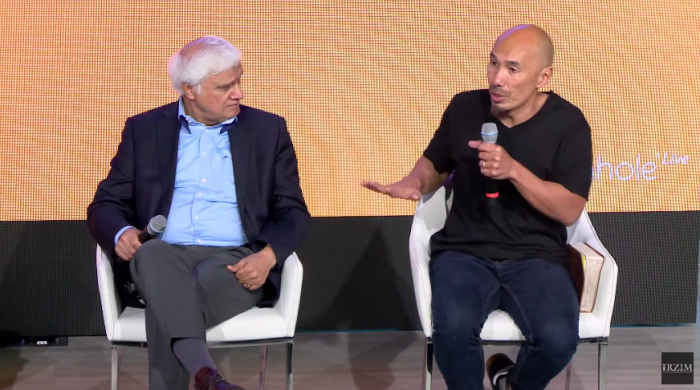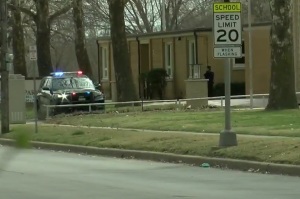Francis Chan: Church must stop apologizing for 'what God says is right and wrong' in politically correct culture

In a postmodern culture obsessed with feelings and political correctness, the Church must stop apologizing for “the way that God thinks and acts and what He says is right and wrong,” Francis Chan recently said.
During a Q&A session at the 2019 Church Leaders Conference, held at the Zacharias Institute in Alpharetta, Georiga, Chan explained that in today’s culture, the pervasive mentality is that “we’re all fighting for our rights.”
“And these are real things, real pain, real feelings that we feel,” he said. “And I love how the Church has been so compassionate towards people. This has been a new move into this really trying to understand people, hear where they're coming from.”
But amid the push to be inclusive and understanding, Chan said “one of the most important passages for our generation” is Isaiah 55:8-9: “For my thoughts are not your thoughts, neither are your ways my ways,’ declares the Lord. ‘As the heavens are higher than the earth, so are my ways higher than your ways and my thoughts than your thoughts.’”
‘“I've read a couple of modern books where people will say, ‘Why would God do this? I wouldn't do it,’” he said. “It’s coming from this mindset where, whether you know it or not, you believe your mind is the ultimate. And what God's saying is, ‘I don't think like you.’”
“I read the Old Testament and so many times I go, 'I wouldn't have done that’. And God says, ‘there is a reason you wouldn’t, because you don't think like I do.’”
The pastor warned that in its compassion for people, the Church has “lost this understanding that ‘yes, I feel your hurt, but my biggest concern is you're not seeing the center of it all and you're not seeing this Being who is so far beyond you that you have to answer to. And that's bigger than the hurt that you're currently facing, and His thoughts are so far beyond ours.’”
“There needs to be a way in which the Church no longer apologizes for the way that God thinks and acts and what He says is right and wrong,” he emphasized.
According to a comprehensive new religious freedom and pluralism report released by the Barna Group this year, nine in 10 pastors believe it is a major part of their role to help Christians have biblical beliefs about specific social issues.
However, half of Christian pastors say they frequently (11%) or occasionally (39%) feel limited in their ability to speak out on moral and social issues because people will take offense.
“The stakes are high in the public square,” the researchers wrote. “The issues pastors feel most pressured to speak out on are the same ones they feel limited to speak on."
Also during the Q&A session, Ravi Zacharias explained that those who adhere to just rationalism or postmodernism believe that “in grabbing the finger of one discipline, they had grabbed the fist of reality.”
“There is a place for rationalism, there is a place for the existentialist thought. There is a place for the empirical, there is a place for postmodernism,” he said. “One thing in defense of postmodern thinking: They believe in community, which is precisely what the Church is really all about.”
The Christian worldview, he added, “distributes its authority between all of these methods because they all have a place.”
“But the fist of reality ultimately is precisely the reasoning of God Himself, who has the rational aspect, who has the existential aspect, who has the community aspect, who has the investigative, empirical aspect,” Zacharias said.
“So while secularism was going to one ‘ism’ at a time, God's probably sitting there saying, ‘You know, you just got one little sliver of truth here. I've got all of these in my orb.’ And when you put it together, it has a cohesiveness of a composite and a worldview that fits together with all of these having their legitimate place,” he concluded.
The theme of the 2019 Church Leaders Conference was “Blessed Are the Peacemakers,” which focused on a message of reconciliation.
Other speakers at the May conference included Becky Pippert, John Bechtel, Michael Ramsden, Lisa Fields, Abdu Murray, Judy Dabler and Vince Vitale.





























